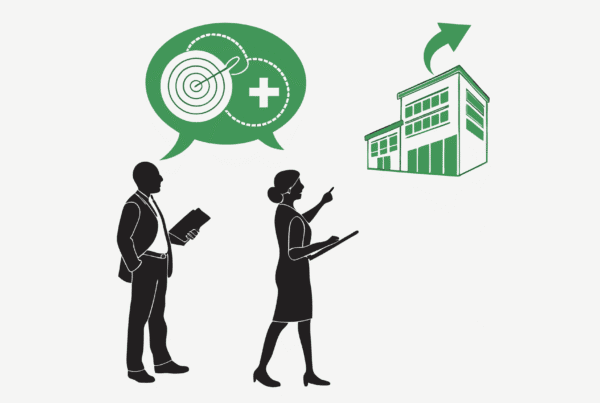For owners of Bariatric & Obesity practices in West Virginia, the current market presents a compelling and unique opportunity. Your state has one of the nation’s highest rates of obesity, yet the utilization of bariatric services remains relatively low. For a potential buyer, this doesn’t signal a lack of demand. It signals a significant, untapped market ready for growth. This article provides a guide to understanding this landscape, preparing your practice for a sale, and navigating the process to secure the best possible outcome for your future.
Market Overview
The market for selling a bariatric practice in West Virginia is defined by a powerful mismatch between clinical need and current service availability. This creates a strong seller’s market for well-run practices.
The Underlying Demand
West Virginia consistently ranks among the states with the highest adult obesity rates. This means a large portion of the population are potential candidates for your services. However, a study noted that the utilization rate for bariatric surgery in the state was as low as 2.8%. For you, the practice owner, this isn’t a sign of a weak market. It s the opposite. It shows a clear, documented need that is currently underserved.
The Growth Opportunity
Sophisticated buyers, from private equity groups to regional health systems, are not looking for saturated markets. They are looking for growth. Your practice is located in a territory they see as a prime expansion opportunity. They know that with the right investment in marketing and infrastructure, they can capture this unmet demand. The fact that studies also show positive surgical outcomes in the region further de-risks the investment in their eyes, making your practice an even more attractive acquisition target.
Key Considerations
When you decide to sell, your focus will naturally shift. It moves from patient care to transaction strategy. You need to prepare for a different kind of challenge. Here are three areas we see owners focusing on for a successful transition.
- Telling Your Practice’s Story. A buyer sees more than just revenue and expenses. They see potential. We help you frame the narrative. You should highlight your successful patient outcomes, your standing in the community, and the untapped growth potential we discussed earlier.
- Protecting Your People and Legacy. A sale impacts your dedicated staff and the legacy you have built. The right deal structure ensures your team is cared for and your clinical standards are upheld. This is often a key point of negotiation that requires careful handling.
- Preparing for Due Diligence. Potential buyers will conduct a thorough review of your financials, operations, and compliance. Getting your books in order, normalizing your earnings, and organizing your documents beforehand prevents surprises that could derail a deal or lower your valuation.
Market Activity
We are seeing increased interest in specialty practices located in markets with strong demographic tailwinds. West Virginia s bariatric and obesity sector fits this description perfectly. This is not a hypothetical trend. Well-capitalized buyers are actively searching for practices like yours to serve as a platform for regional growth.
These buyers range from large, strategic health systems looking to expand their service lines to private equity groups seeking to build a network of specialized clinics. Each has a different approach, and finding the right fit is crucial. The key is to start preparing your practice long before you plan to exit. Buyers pay for proven performance, not just potential. The work you do in the 12 to 24 months before a sale has the biggest impact on your final valuation.
The Sale Process
Selling a practice is not a single event. It is a structured process designed to protect your confidentiality and create a competitive environment that maximizes value. An unsolicited offer might seem convenient, but it rarely represents the best possible deal. A formal process typically includes these phases.
Phase 1: Preparation and Valuation
This is the foundation. It involves a deep dive into your financials to determine a realistic valuation, preparing marketing materials that tell your practice’s growth story, and identifying any operational issues that could be fixed pre-sale to increase value.
Phase 2: Confidential Marketing
We don t just “list” your practice. We run a confidential, targeted outreach to a curated list of qualified financial and strategic buyers. This creates competitive tension, which is the key to driving up the price and improving terms.
Phase 3: Negotiation and Due Diligence
After initial offers are received, we help you negotiate the key terms of a deal. Once a letter of intent is signed, the buyer begins a formal due diligence process. Our role is to manage this process, anticipate requests, and ensure a smooth path to closing.
How Your Practice is Valued
One of the first questions every owner asks is, “What is my practice worth?” The answer is more complex than a simple rule of thumb. Sophisticated buyers value your practice based on its Adjusted EBITDA (Earnings Before Interest, Taxes, Depreciation, and Amortization).
This isn’t your net income. It is your true cash flow after “normalizing” for owner-specific expenses and one-time costs. We work with owners to identify these adjustments, which almost always results in a higher, more accurate picture of profitability.
| Financial Metric | Example Value | SovDoc Adjustment | Explanation |
|---|---|---|---|
| Reported Net Income | $250,000 | The starting point. | |
| Owner Salary (Above Market) | +$100,000 | We add back the portion of your salary that is above fair market value. | |
| Personal Car Lease | +$12,000 | Expenses not essential to the business are added back. | |
| Adjusted EBITDA | $362,000 | The true profitability that buyers value. |
This Adjusted EBITDA figure is then multiplied by a valuation multiple (e.g., 5x, 7x) that is determined by your specialty, growth rate, and market position. Telling the right story about your practice’s potential is just as important as the numbers themselves.
Post-Sale Considerations
The day you close the deal is not the end of the story. It is the beginning of a new chapter. Your role, your financial outcome, and your legacy are all shaped by the structure of the deal. For many physicians, a primary concern is losing control or being forced into an immediate retirement.
This does not have to be the case. Modern deal structures offer tremendous flexibility. You might continue to lead the practice clinically as part of a larger organization. You could also choose to “roll over” a portion of your equity, retaining ownership in the new, larger entity. This gives you a second opportunity for a financial windfall when that larger group is sold in the future.
These components, along with potential earnouts tied to future performance, are critical parts of the negotiation. Defining your personal, financial, and professional goals upfront is the most important step in crafting an exit that truly works for you.
Frequently Asked Questions
Why is West Virginia considered a unique market for selling a Bariatric & Obesity practice?
West Virginia has one of the highest adult obesity rates in the nation but a low utilization rate of bariatric surgery (around 2.8%). This mismatch signals a significant untapped market with strong growth potential, making it an attractive area for buyers seeking expansion opportunities.
What key factors should I focus on to prepare my Bariatric & Obesity practice for sale?
You should focus on telling your practice’s story by highlighting successful patient outcomes and growth potential, protecting your staff and legacy through thoughtful deal structures, and preparing for due diligence by organizing financials, normalizing earnings, and ensuring compliance to avoid surprises during the sale process.
How is the value of my Bariatric practice determined?
Your practice’s value is primarily based on Adjusted EBITDA, which reflects true cash flow after adjusting for owner-specific expenses and one-time costs. This figure is multiplied by a valuation multiple that depends on your specialty, growth rate, and market position. Telling a compelling growth story is also critical to maximizing value.
What should I expect during the sale process of my Bariatric & Obesity practice?
The sale process involves several phases:
- Preparation and Valuation: Reviewing finances and preparing marketing materials.
- Confidential Marketing: Targeted outreach to qualified buyers to create competitive tension.
- Negotiation and Due Diligence: Managing offer negotiations and thorough reviews by buyers to ensure a smooth closing.
Can I maintain a role in my practice after selling it?
Yes, modern deal structures often allow you to continue leading the practice clinically or retain equity in the new larger entity through a rollover. This flexibility helps protect your professional legacy and may provide additional financial benefits through future earnouts or equity growth.



